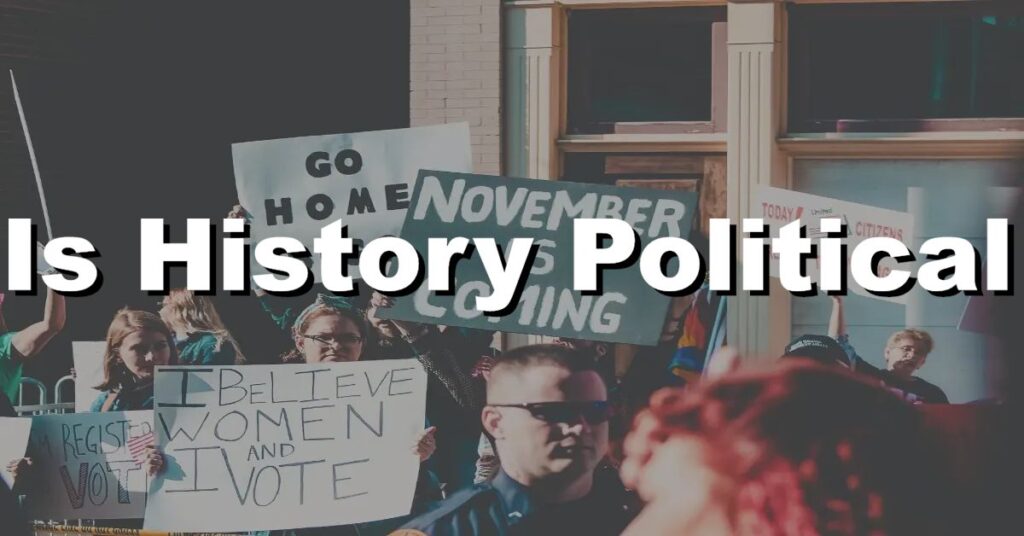History is often viewed as a collection of objective facts and events. However, the way we interpret and present those events is heavily influenced by politics. History is often written by the victors and can be used to shape national identity, justify political decisions, and support certain ideologies.
In this blog post, we will explore the relationship between history and politics and how political forces can shape our understanding of the past.
The Political Use and Abuse of Historical Narratives
Historical narratives have long been utilized for political purposes, serving as a means to shape collective memory, justify political actions, and influence public opinion. While historical narratives can provide valuable insights into the past, they are susceptible to manipulation and abuse.
Politicians often selectively emphasize certain aspects of history to support their agendas or reinforce their ideological viewpoints. This can lead to distorted interpretations, the erasure of inconvenient facts, and the promotion of biased narratives.
Recognizing the political use and potential abuse of historical narratives is crucial for maintaining a nuanced understanding of the past and guarding against manipulation. It highlights the importance of critical analysis, diverse perspectives, and rigorous historical scholarship in interpreting history.
How Political Context Shapes Our Understanding of History
The interpretation and understanding of history are deeply influenced by political context. Political ideologies, cultural values, and power dynamics all shape how history is taught, remembered, and commemorated. Different political contexts can lead to diverse interpretations and narratives about historical events.
For example, the same historical event may be remembered and portrayed differently in countries with conflicting national identities. Additionally, political agendas can influence the inclusion or exclusion of certain historical perspectives, thereby shaping the collective memory of a society.
Recognizing the impact of political context on our understanding of history helps us critically examine historical narratives, seek diverse sources, and foster a more comprehensive and inclusive understanding of the past.
The Role of Historians in Political Discourse
Historians play a vital role in political discourse by providing valuable insights into the past based on rigorous research and analysis. They contribute to shaping our understanding of historical events, offering interpretations, and challenging prevailing narratives. Historians bring expertise, methodology, and a commitment to objectivity in their examination of historical sources and evidence.
Their work helps shed light on complex historical contexts, uncover hidden stories, and provide valuable lessons for the present and future. Historians also have a responsibility to engage in public discourse, share their expertise, and contribute to informed discussions about historical and political matters.
Their role in political discourse is essential for fostering a deeper understanding of the past and promoting evidence-based decision-making.
The Relationship between Historical Revisionism and Politics
Historical revisionism refers to the reinterpretation of historical events based on new evidence or the deliberate distortion of historical facts to advance political agendas. It often involves challenging prevailing narratives, questioning established interpretations, or introducing alternative perspectives.
While historical revisionism can contribute to a more accurate understanding of the past, it can also be misused to manipulate public opinion and legitimize political ideologies. Politicians and ideologues may selectively reinterpret history to serve their interests, promote nationalism, or deny historical injustices.
Recognizing the relationship between historical revisionism and politics is important for critically evaluating historical claims, seeking reliable sources, and promoting a nuanced understanding of the past based on sound historical scholarship.
The Ethics of Political Bias in Historical Scholarship
Political bias in historical scholarship raises important ethical considerations. Historians, like any scholars, should strive for objectivity and adhere to rigorous research methods when examining historical events. However, political biases can sometimes influence the interpretation and presentation of historical evidence.
While historians may hold personal political beliefs, it is crucial for them to distinguish between their ideological perspectives and their professional responsibilities as scholars. Transparency and the acknowledgment of potential biases are essential to maintain the integrity of historical scholarship. It is also important for historians to engage in critical self-reflection, seek diverse viewpoints, and subject their work to peer review.
By upholding ethical standards and promoting intellectual rigor, historians can contribute to a more objective and comprehensive understanding of the past.
Conclusion
In conclusion, while history is often shaped by politics, it is not inherently political. Understanding the political contexts in which events occur is important for understanding history, but it is also important to recognize that history is shaped by many other factors beyond politics.

